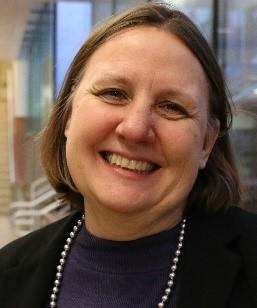Project 1: Feasibility of mapping Changes in Tissue Depth in Adults While Sucking
Project Description: Measuring the intraoral pressure of infants has been reported to be useful in assessing the infants' ability to effectively bottle or breastfeed. Existing methods used in measuring sucking intraoral pressure during breastfeeding interfere with the naturalistic dyadic positioning of breastfeeding, and/or pose a risk to the infant. This research project aims to measure pressures within the adult mouth using the Millar Mikro-Tip catheter and test the feasibility of mapping tissue depth changes using IR Stereo Kinect. The study will validate the pressure curve across the palatal vault to the buccal and lingual side of the teeth using the Millar Mikro-Tip catheter and correlate it with tissue depth changes using IR Stereo Kinect during sucking. The goal of this project is to capture intraoral pressure without internal pressure sensors in adults, which will be the first step towards measuring breastfeeding in infants without internal sensors, thus supporting natural feeding and increasing infant safety.
Team:

Ruth Lucas, PhD, RNC, CLS, FAAN
School of Nursing Associate Professor, Principal Investigator

Dr. Martin Huber, PhD,
College of Engineering Assistant Professor-In-Residence, Co-Investigator

James F. Stevens,
PhD Mechanical Engineering student, Graduate Research Assistant

Confidence C. Francis-Edoziuno,
PhD Nursing Student, Graduate Research Assistant
confidence.francis-edoziuno@uconn.edu
Project II: Objective continuous assessment of nurses’ trust in artificial intelligence healthcare technologies
Project Description: Artificial Intelligence (AI) is already present in our daily lives. In healthcare technologies, there has been an explosion of AI tools designed to improve the lives of caregivers and increase patient safety. These AI healthcare technologies (AIHT) tools have enormous potential to improve healthcare, reduce costs, and increase the efficiency of the healthcare system. However, one element that determines the acceptance and adoption of any AI technology is trust. Trust is "the attitude that an agent will help achieve an individual's goals in a situation characterized by uncertainty and vulnerability". Users' acceptance of automated technology depends on their initial trust, but also on the perceived reliability of the technology and their experience with the automated system. While low trust leads to under-reliance on AIHT, high trust leads to over-reliance on these technologies, neither of which allows for optimal interaction between nurses and AIHT. We hypothesize that it is possible to develop a biomarker for objective, continuous, and non-invasive assessment of nurses’ trust in AIHT based on electrodermal activity (EDA). Currently, trust is assessed using questionnaires, such as the empirically derived Trust in Automated Systems Scale and the recently developed and validated Human-Computer Trust Scale (HCTS). However, the HCTS and other questionnaires and scales are difficult to use in clinical settings and cannot provide a continuous assessment of trust. The establishment of appropriate trust metrics has recently been identified as an important element in the evaluation of human-AI teams. A continuous and objective tool to assess user confidence in AIHT will help improve safety and performance. We aim to use EDA and machine learning to develop an objective biomarker of trust in AIHT, and to use our novel, innovative tool in future studies investigating the interplay between trust and AI-assisted task performance in healthcare.
Team:

Hugo F. Posada-Quintero , PhD
Assistant Professor ,
Department of Biomedical Engineering

Valorie MacKenna , PhD, RN, CNE, CHSE
Assistant Clinical Professor ,
Director of Simulation-Based Education

